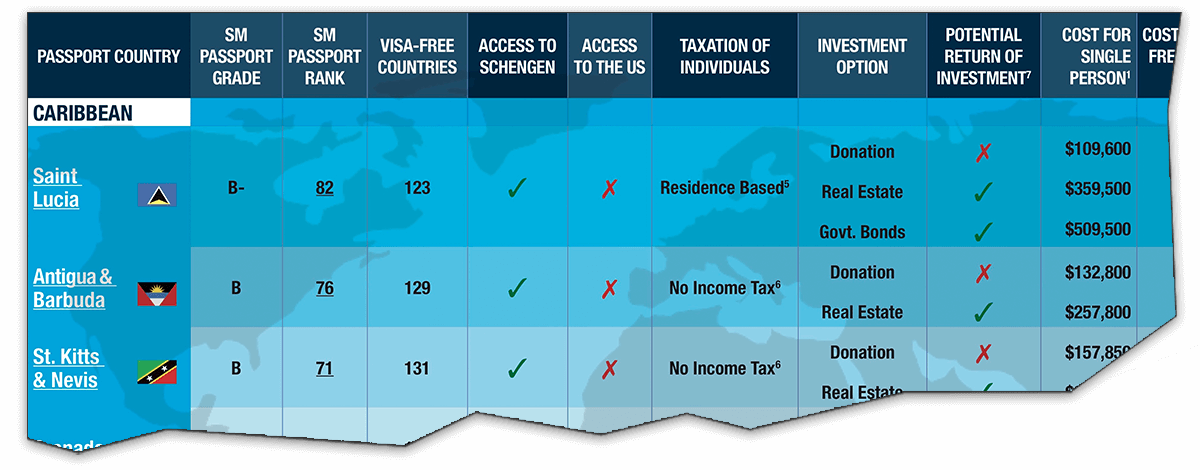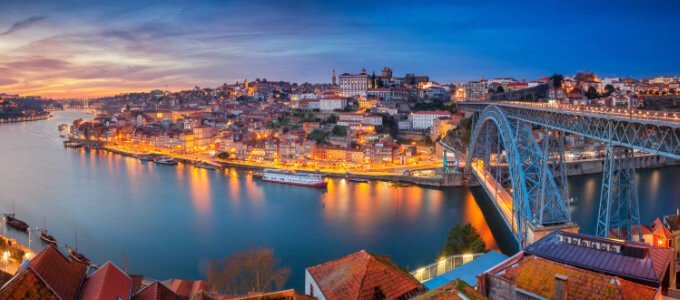Portugal D7 Passive Income Visa:
Ultimate Guide 2023
-
AUTHOR
Andre Bothma -
LAST UPDATED
January 4, 2023
Looking to settle or retire in Portugal without the need to make an expensive Golden Visa investment? Whilst relatively unknown, the Portuguese D7 Passive Income Visa is an excellent option for obtaining residency in this southern European country.
What’s more, you don’t have to be a retiree in order to qualify — any non-EU citizen with the financial means to support themselves through stable recurring passive income, backed up by meaningful savings, can apply.
Find out more about the benefits of this highly affordable residency program below, or complete the contact form to request a free call-back from a trusted Portuguese immigration consultant.
Looking to settle or retire in Portugal without the need to make an expensive Golden Visa investment? Whilst relatively unknown, the Portuguese D7 Passive Income Visa is an excellent option for obtaining residency in this southern European country.
What’s more, you don’t have to be a retiree in order to qualify — any non-EU citizen with the financial means to support themselves through stable recurring passive income, backed up by meaningful savings, can apply.
Find out more about the benefits of this highly affordable residency program below, or complete the contact form to request a free call-back from a trusted Portuguese immigration consultant.
Compare ALL Citizenship-By-Investment Options At A Glance...
Download our Citizenship By Investment Comparison Sheet to see at a glance which options are right for you…

It could potentially help you save tens — or even hundreds of thousands — of Dollars by picking the best passport for your personal situation at the lowest price.
Inside, you’ll find…
| Characteristic | Golden Visa (Artistic Production – Low Density Areas) | D7 Passive Income Visa |
| Minimum Investment Required | €200.000 | €0 |
| Process Timeline | 12-18 months | 4-6 months |
| Family Eligible | Yes | Yes |
| Path to Permanent Residency & Citizenship | Yes | Yes |
| Minimum In-country Stay Required Per Year | 1 week | 6+ months |
| Portuguese Language Proficiency Required | No | No |
The Portuguese Golden Visa is one of the most famous Residency By Investment (RBI) programs in the world, thanks to the aggressive marketing efforts of investment migration firms and the Portuguese government.
And with a minimum investment requirement of €200,000, and fees of up to €30,000, it’s easy to understand why it is being promoted so widely — it’s a serious money spinner.
In contrast, the Portuguese D7 Visa program is virtually unknown. For starters, it requires no pricey property investment — although you do have to have an address in Portugal. And while there are scores of law firms that can assist you with your application, the D7 fees are far lower than those of a Golden Visa.
You can expect to pay only around €3,000 in legal fees as a single applicant, and around €4,000 if you’re applying as a married couple. But you could also apply for the D7 without recruiting the services of an immigration professional — if you’re up for doing the research and legwork yourself — in which case you’ll end up spending practically nothing to apply.
So how does it all work?
The Portuguese authorities welcome D7 Visa applications from ANYONE with the means to support and accommodate themselves in the country. Affiliate marketers, digital nomads, remote workers and even clergy members can apply.
Furthermore, the program’s passive income requirements are the most lenient of all the competing EU programs: As a single applicant, the minimum monthly income required is only €760 — but we’ll get into the financial requirements in more detail later.
Please note: It is advisable to treat the above amount as the absolute minimum. In addition, the exact financial requirements tend to vary from one Portuguese consular mission to the next, so it’s advisable to contact your local Portuguese embassy to confirm their exact requirements.
What makes the D7 even more appealing than say the Spanish Non-Lucrative Visa or the Italian Elective Residence Visa, is the fact that you are allowed to get a local job in Portugal.
And, as an added bonus, you can apply for citizenship and a Portuguese passport after only five years, whereas with the Spanish Non-Lucrative Visa, you’ll only become eligible to apply for Spanish citizenship after 10 years or longer. (Unless you’re from a former Spanish colony, in which case the process is far shorter.)
And in order to get Spanish citizenship, you’ll have to renounce your native citizenship, as Spain doesn’t recognize dual nationality.
Whereas in Portugal, you’ll be able to obtain second citizenship without having to give up your current nationality.
So where’s the catch..?
As a rule, EU Golden Visas offer far greater flexibility than passive income or non-lucrative visas. In order to maintain your Portuguese Golden Visa residency status, you’ll only be required to spend two weeks in-country during the first two years, and then, on average, one week per year for every subsequent year.
For Greece and Spain’s Golden Visa programs, there are no minimum stay requirements — you don’t have to visit these countries at all.
In contrast, the D7 has the following minimum stay requirements: You must stay in Portugal for at least 183 days per year in total – and ideally more.
In practice, this means that the D7 is NOT well suited as a “paper residency” — you actually need to intend spending six months or more per year in Portugal.
But if that is your intention, it would be lunacy to invest €200,000+ on a property in a country with a fairly overheated property market in order to apply for a Golden Visa.
For those seeking to actually settle in Portugal, the D7 Visa therefore makes a lot more sense.
Please note: You’ll also be required to get comprehensive, EU-wide health insurance and repatriation cover for both yourself and any dependent family members joining you in Portugal.
This cover must be prepaid for at least the validity of your D7 “entry stamp visa”, which covers the time you’ll be spending in-country upon application. Once you become a legal resident, you can gain access to national healthcare services in Portugal, however private medical insurance is both cheap and useful to obtain.
A fast, simple process:
The D7 Visa can typically be obtained in three to four months, and the program requirements are incredibly lenient (outside of minimum stays).
No capital investment required:
While you are required to have an address in Portugal, you don’t need to buy a property in order to qualify. And if you still decide to buy, there is no minimum pricing requirement on it.
Low/no application fees:
It is possible to apply for the D7 Visa yourself without recruiting the services of a immigration lawyer — yet the Portuguese bureaucracy can be complex, especially if you don’t speak the language. If you were to employ the services of a law firm, you can expect to pay around €3,000 in fees as a single applicant, and around €4,000 as a married couple.
Compared to the Golden Visa, which typically sees applicants paying services fees from anywhere between €10,000 and €30,000+, the D7’s fees are exceptionally affordable. But again, if you’re happy to do the legwork yourself, you can also avoid this cost, in which the government application fees are truly nominal.
Short path to citizenship:
Once you’ve maintained your D7 residency for a period of five years, you’ll become eligible to apply for Portuguese citizenship and a passport. At that point, you will be expected to pass a language test in basic Portuguese.
Sundrenched lifestyle:
Portugal is renowned for its magnificent scenery, sumptuous cuisine, a leisurely pace of life and sunny weather almost all year round. Whether you’re seeking to retire there or settle in way before retirement, it is an excellent place to live in — and it’s one of the EU’s most affordable countries.
Attractive taxation:
As a D7 Visa holder, you’ll be able to apply for the Non Habitual Tax regime, offering reduced tax rates and some exemptions for your first ten years in the country.
Applying on the basis of stable passive income:
Talk to your nearest consulate to confirm their exact guidelines:
The official minimum requirements for the D7 (source in Portuguese) are exceptionally low. The calculation of the minimum amount you’ll need is tied to the Portuguese minimum wage (which in 2023, is €760 a month).
So in the case of a family of four, you’ll need to be able to prove stable recurring income of at LEAST €1,596 per month.
Also, it is important to note that you can no longer obtain the D7 based solely on the basis of significant savings.
Until early 2022, showing a significant amount of money in your bank account was sufficient in some cases. Now, the government wants to see both substantial savings AND recurrent income.
The D7 Visa features a two-phase application process. First, you apply for a Portuguese national visa (a D-type “settlement” visa, as opposed to a C-type tourist visa). Then, you use this visa to travel to Portugal to attend your biometrics appointment at one of the branches of the country’s immigration authorities (SEF).
Just like with Spain, you start your application for Portuguese residency in your nearest Portuguese consulate. You should probably plan to apply approximately five months before you intend to travel to Portugal.
Depending on the country and the consulate you are applying in, approvals take anywhere between one and three months. Once you are approved and your residency visa is stamped into your passport, you have 120 days to enter Portugal, so plan accordingly. The visa is good for 2 entries only, so factor this in if you’ll be leaving the country before your Portuguese temporary residency card are issued, and returning to collect it.
And to be on a safe side, you should probably buy your tickets to Portugal after you will be approved.
Given the current COVID-19 restrictions, you cannot enter most EU countries as a tourist.
Yet once the consulate has approved your visa application, you will be able to enter as a resident — making Portuguese residency an excellent investment in your freedom of movement during these uncertain times…
Here’s a breakdown of the entire process:
There are a number of other EU residency visa programs available, including the Elective Residence Visa in Italy, the Non-Lucrative Visa in Spain, and the Financial Independent Person Visa in Greece.
Yet in our opinion, the Portuguese program is far superior, both in terms of its low financial requirements, and its short path to citizenship.
The D7 Visa program offers excellent value — but it might not be around forever. Residency programs can and do go through changes. In some cases the minimum criteria may become more stringent, whereas in other cases some programs get cancelled altogether.
So if you’re serious about taking action, we encourage you to do so TODAY in order to avoid missing out. Simply complete the below contact form and we’ll put you in touch with a trusted Portuguese immigration professional.
Fees from only €3,000 - no investment required.
Contact us now for more information.
